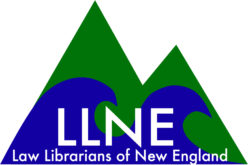When assisting self-represented patrons in the public library, it is completely appropriate for public librarians to encourage self-represented patrons and patrons with emerging legal needs to find legal help from real-life attorneys. Saying “yes” to a referral is not saying “no” to a patron. (See the Legal Link explainer on Getting to No).
Many organizations exist in each New England state to provide civil legal services for people in need. The trick can be figuring out which organizations to refer patrons to. Luckily, you don’t need to shoulder the responsibility of matching patrons to legal service providers. Other organizations routinely handle that kind of thing.
This brief explainer is meant to help librarians distinguish between types of legal service providers (referral services, legal aid, free legal clinics, law school clinics) with an eye toward identifying those most relevant to a given patron.
Lawyer Referral Services
Lawyer referral services are like matchmakers for potential clients and attorneys. Some lawyer referral services match potential clients to free legal services and provide limited legal advice, provided income requirement are met. Patrons who do not meet income thresholds for free legal services can contact legal referral services operated by state and county bar associations and other organizations for assistance finding attorneys.
Examples of legal referral services (to free/low-cost services) include:
- Children’s Law Center’s Children’s Lawline;
- Law Line of Vermont;
- Legal Advice and Referral Center, Inc. (in New Hampshire); and
- Statewide Legal Services of Connecticut’s Statewide Intake for Legal Aid Services.
Examples of referral services (to conventional legal services) operated by professional and bar associations include:
- Maine State Bar Association Lawyer Referral Service;
- Massachusetts Bar Association Lawyer Referral Service;
- National Lawyers Guild;
- New Hampshire Lawyer Referral Service;
- New Haven County Bar Association Lawyer Referral Service;
- Rhode Island Bar Association Lawyer Referral Service; and
- Vermont Bar Association Lawyer Referral Service.
Legal Aid
Legal Aid organizations provide free legal assistance in civil (NOT criminal) legal matters for people living in poverty, with a disability, or who are over age 60. Legal Aid services often focus on family law (including domestic violence and child support and custody), and housing issues (such as evictions and foreclosures). Legal Aid organizations rely significantly on grants from the Legal Services Corporation and generally observe an income threshold for clients who live in households with annual incomes at or below 125% of the federal poverty guidelines. Irrespective of income levels, people with disabilities might qualify for legal assistance from Protection and Advocacy organizations on relevant disability-related matters such as disability discrimination, special education services, and public assistance benefits.
A short sample of Legal Aid organizations in New England includes:
- Connecticut Legal Services, Inc.;
- Greater Boston Legal Services;
- New Hampshire Legal Aid;
- Pine Tree Legal Assistance (Maine);
- Rhode Island Legal Services; and
- Vermont Legal Aid.
Protection and Advocacy agencies in New England:
- Disability Rights Center (MA)
- Disabilities Rights Center (NH)
- Disability Rights Connecticut
- Disability Rights Maine
- Rhode Island Disability Law Center
- Vermont Legal Aid’s Disability Law Project
Legal Clinics and Court Service Centers
Legal clinics can take the form of either drop-in services provided by volunteer attorneys or law school clinics. State court services and volunteer attorneys collaboratively provide walk-in, free legal advice and assistance at courthouses – and sometimes in public libraries! Hours for these services are limited and help is often given on a first-come-first-serve basis. State judiciary websites are good sources of information about these opportunities. Clients of law school clinics are often referred to the clinics by legal aid and other advocacy-oriented organizations. That is to say that law school clinics don’t always do their own client intake. Clients of law school clinics are represented by law students who are themselves supervised by licensed attorneys.
Self-represented litigants might also find help short of legal representation at state court “service centers.” Connecticut and Massachusetts supplement their online resources with in-person assistance including help with electronic filings, access to computers, printers, scanners, etc., notary services, and court forms. Maine, New Hampshire, Rhode Island, and Vermont provide assistance and access to important information via their courts’ website.
Court-affiliated legal clinics:
- Connecticut Judiciary clinics
- “Lawyer for the Day” programs in Massachusetts
- Vermont Judiciary Environment Division Free Legal Clinic
Law School Clinics include:
- Cumberland Legal Aid Clinic (University of Maine Law School);
- Harvard Legal Aid Bureau; and
- South Royalton Legal Clinic (Vermont Law School).
Walk-in Court Service Centers:
- Connecticut Judicial Branch Court Service Centers: https://www.jud.ct.gov/csc/
- Massachusetts Trial Court Service Centers: https://www.mass.gov/service-details/learn-about-court-service-centers
